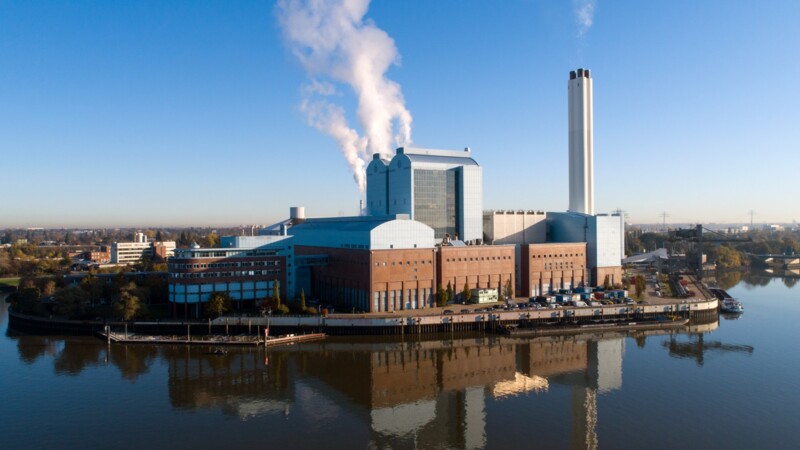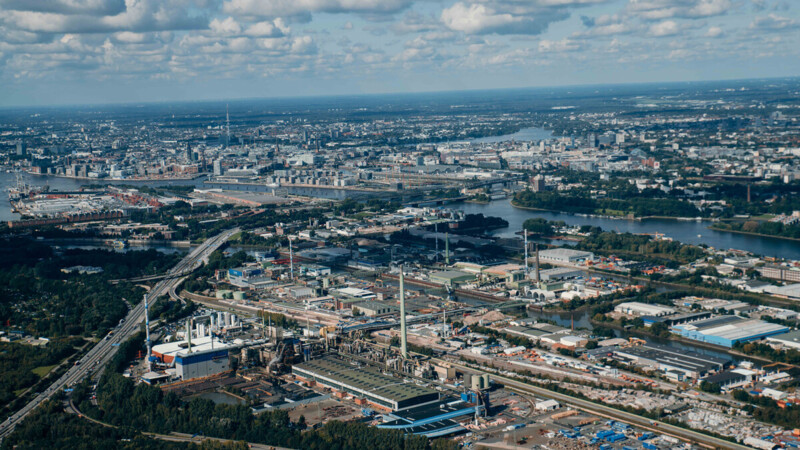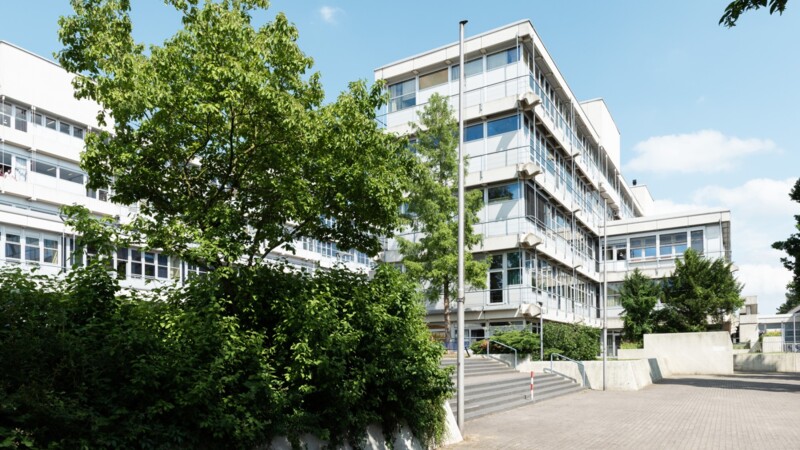"Waste is a resource that we should use as efficiently as possible," said Jens Kerstan, Senator for the Environment, Climate, Energy and Agriculture. ZRE recovers recyclables such as metal, glass, plastic and paper from household waste and generates climate-friendly heat and energy from the residue. "ZRE allows us to secure long-term disposal, to phase out coal from Hamburg's district heating supply and to achieve energy independence," he added. The plant will generate up to 75 megawatts of district heating in winter and will supply up to 22 megawatts of electricity in summer.
The foundation stone for the new “Centre for Resources and Energy” (ZRE) was laid Wednesday (April 19, 2023) on the site of the former Stellinger Moor waste recycling plant. On completion in 2025, ZRE will recover around 9,600 tons of recyclable materials every year generating electricity and heat through thermal waste treatment. That should cover about half of district heating for households in Hamburg, according to Stadtreinigung Hamburg (SRH). ZRE should also help conserves resources in Hamburg.
Generating climate-friendly heat in winter and electricity in summer
Multi-stage waste sorting plant
"We will soon supply around half of the district heating for households and become the largest supplier of recycling needs in Hamburg," said Prof. Dr. Rüdiger Siechau, Managing Director of SRH. Christian Heine, spokesman for Hamburger Energiewerke, added: "Apart from the Hafen energy park, ZRE is an essential heat supplier and will enable us to replace the Wedel coal-fired power plant by 2025 with mostly climate-neutral heat sources." A 2.2 kilometre pipeline is being built to link up ZRE to the urban heating network. ZRE's multi-stage system sorts out recyclable materials from residual waste first. The remaining, non-recyclable residual waste is then sorted for incineration lines. Around 145,000 tonnes of household waste are to be sorted annually to achieve the highest level of recycling.
nj/mm/pb
Sources and further information
More
Similar articles

Drilling underway for aquifer heat accumulator in Hamburg

Drilling underway on Hamburg's new district heating tunnel

Hamburg to generate heat from waste
